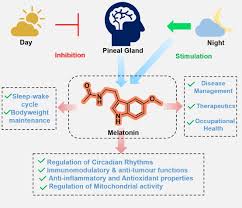The Benefits of Taking Supplements for Overall Health
Supplements play a vital role in supporting our overall health and well-being. While a balanced diet is essential for obtaining nutrients, sometimes our bodies may need an extra boost to meet their requirements. Here are some key benefits of taking supplements:
Filling Nutritional Gaps
Even with a healthy diet, it can be challenging to get all the necessary nutrients our bodies need. Supplements can help fill these nutritional gaps, ensuring we meet our daily requirements for vitamins, minerals, and other essential nutrients.
Supporting Specific Health Goals
Supplements can be tailored to support specific health goals, such as improving immune function, enhancing athletic performance, or promoting heart health. By choosing the right supplements, individuals can target areas of concern and optimize their overall well-being.
Boosting Energy Levels
Sometimes our energy levels may dip due to various factors like stress, poor sleep, or nutrient deficiencies. Certain supplements, such as vitamin B12 or iron, can help boost energy levels and combat fatigue, allowing us to feel more alert and productive throughout the day.
Enhancing Recovery and Repair
For individuals engaged in regular physical activity or recovering from an injury, supplements like protein powders or collagen can aid in muscle repair and recovery. These supplements provide essential building blocks for tissue repair and regeneration.
Improving Overall Well-Being
Supplements can contribute to improved overall well-being by supporting various bodily functions and systems. From brain health to bone strength to skin vitality, the right combination of supplements can help individuals feel their best and maintain optimal health.
In conclusion, while supplements should not replace a healthy diet, they can complement it by providing additional support for our bodies’ needs. Before starting any new supplement regimen, it’s important to consult with a healthcare professional to ensure they are safe and appropriate for your individual health needs.
7 Benefits of Supplements: Enhancing Health, Energy, and Well-Being
- 1. Supplements can help fill nutritional gaps in your diet.
- 2. They can support specific health goals, such as immune function or heart health.
- 3. Certain supplements can boost energy levels and combat fatigue.
- 4. Supplements aid in muscle recovery and repair, especially for active individuals.
- 5. They contribute to overall well-being by supporting various bodily functions and systems.
- 6. Supplements are convenient and easy to incorporate into your daily routine.
- 7. They can provide essential nutrients that may be lacking in your diet.
5 Key Concerns About Supplements: Regulation, Interactions, Overdosing, Costs, and Claims
- 1. Lack of Regulation
- 2. Possible Interactions
- 3. Overdosing Risk
- 4. Cost Considerations
- 5. False Claims
1. Supplements can help fill nutritional gaps in your diet.
Supplements play a crucial role in bridging the nutritional gaps that may exist in our diets. Despite our best efforts to eat a balanced and varied diet, it can be challenging to consume all the essential vitamins, minerals, and nutrients our bodies require for optimal function. By incorporating supplements into our daily routine, we can ensure that we are meeting our body’s needs and maintaining overall health and well-being. Whether it’s due to dietary restrictions, busy lifestyles, or specific nutrient deficiencies, supplements provide a convenient and effective way to fill these nutritional gaps and support our bodies’ vital functions.
2. They can support specific health goals, such as immune function or heart health.
Supplements offer a valuable advantage by supporting specific health goals, such as enhancing immune function or promoting heart health. By targeting these specific areas of concern, supplements can provide the necessary nutrients and compounds that may be lacking in our regular diet. For individuals looking to boost their immune system or improve cardiovascular health, incorporating supplements tailored to these goals can be a proactive and effective approach to maintaining overall well-being.
3. Certain supplements can boost energy levels and combat fatigue.
Certain supplements have the ability to boost energy levels and combat fatigue effectively. For individuals facing low energy due to factors like stress, poor sleep, or nutrient deficiencies, supplements such as vitamin B12 or iron can provide a much-needed energy boost. By replenishing essential nutrients that support energy production in the body, these supplements help individuals feel more alert, focused, and revitalized throughout the day.
4. Supplements aid in muscle recovery and repair, especially for active individuals.
Supplements play a crucial role in supporting muscle recovery and repair, particularly for individuals who lead active lifestyles. After intense physical activity or exercise, the body requires adequate nutrients to repair and rebuild muscle tissues. Supplements such as protein powders, amino acids, and creatine provide essential building blocks that help speed up the recovery process, reduce muscle soreness, and promote muscle growth. By incorporating these supplements into their routine, active individuals can enhance their overall performance and support their muscles’ health and resilience.
5. They contribute to overall well-being by supporting various bodily functions and systems.
Supplements play a crucial role in contributing to overall well-being by supporting various bodily functions and systems. By providing essential nutrients that may be lacking in our diets, supplements help ensure that our bodies have the necessary building blocks to function optimally. From supporting brain health and immune function to promoting bone strength and cardiovascular health, supplements can target specific areas of the body to enhance overall wellness. By addressing nutritional deficiencies and supporting vital bodily functions, supplements play a key role in maintaining and improving our overall health and well-being.
6. Supplements are convenient and easy to incorporate into your daily routine.
Supplements offer the advantage of convenience and ease of integration into your daily routine. With busy schedules and on-the-go lifestyles, taking supplements can provide a simple and efficient way to ensure you are meeting your nutritional needs. Whether in the form of capsules, tablets, powders, or liquids, supplements can be easily incorporated into your morning or evening routine without requiring significant time or effort. This convenience makes it more manageable to maintain a consistent intake of essential nutrients, supporting your overall health and well-being effortlessly.
7. They can provide essential nutrients that may be lacking in your diet.
Supplements can play a crucial role in providing essential nutrients that may be lacking in your diet. Despite our best efforts to maintain a balanced and nutritious diet, it can be challenging to consistently meet all of our body’s nutritional requirements through food alone. Supplements offer a convenient and effective way to ensure that we are getting an adequate intake of vital vitamins, minerals, and other nutrients that are necessary for optimal health and well-being. By filling these nutritional gaps, supplements help support overall bodily functions and promote a state of wellness that may otherwise be compromised by dietary deficiencies.
1. Lack of Regulation
The lack of regulation in the supplement industry poses a significant con, as these products are not subjected to the same stringent oversight as pharmaceutical drugs. This disparity in regulation can result in inconsistencies in the quality and safety of supplements available on the market. Without standardized regulations in place, consumers may face challenges in determining the efficacy and purity of the supplements they are purchasing, potentially putting their health at risk. It is crucial for individuals to exercise caution and conduct thorough research before incorporating supplements into their daily routine to ensure they are choosing products that meet high standards of quality and safety.
2. Possible Interactions
Certain supplements can pose a risk due to potential interactions with medications or other supplements. These interactions can lead to adverse effects or diminish the effectiveness of either the supplement or the medication. It is crucial for individuals to be aware of these possible interactions and consult with a healthcare provider before adding any new supplement to their regimen, especially if they are taking medications or other supplements concurrently. Being informed about potential interactions can help prevent unwanted complications and ensure the safe and effective use of supplements for overall health and well-being.
3. Overdosing Risk
Taking high doses of certain supplements can pose a significant risk of overdosing, leading to potential toxicity and negative health outcomes. While supplements are intended to complement a healthy diet and provide essential nutrients, excessive intake can overwhelm the body’s capacity to process them effectively. This can result in adverse effects on various bodily systems, including the liver, kidneys, and cardiovascular system. It is crucial to follow recommended dosage guidelines and consult with a healthcare provider before significantly increasing supplement intake to avoid the risks associated with overdosing.
4. Cost Considerations
Cost considerations can be a significant drawback when it comes to taking supplements. The expense of regularly purchasing supplements can add up quickly, particularly if they are not covered by insurance or if individuals opt for high-quality products. This financial burden may deter some people from consistently incorporating supplements into their routine, potentially impacting their ability to address specific health concerns or meet nutritional needs effectively. It is essential for individuals to weigh the cost of supplementation against the potential benefits and explore more affordable options without compromising quality to ensure sustainable and budget-friendly supplementation practices.
5. False Claims
The supplement industry has been criticized for promoting false claims regarding the benefits of their products, often exaggerating the potential outcomes and misleading consumers. This practice can create unrealistic expectations among individuals seeking to improve their health or address specific concerns through supplementation. As a result, consumers may invest in products that fail to deliver the promised results, leading to disappointment and skepticism about the efficacy of supplements in general. It is essential for consumers to approach supplement claims with caution and skepticism, conducting thorough research and consulting healthcare professionals before incorporating any new supplements into their routine.




